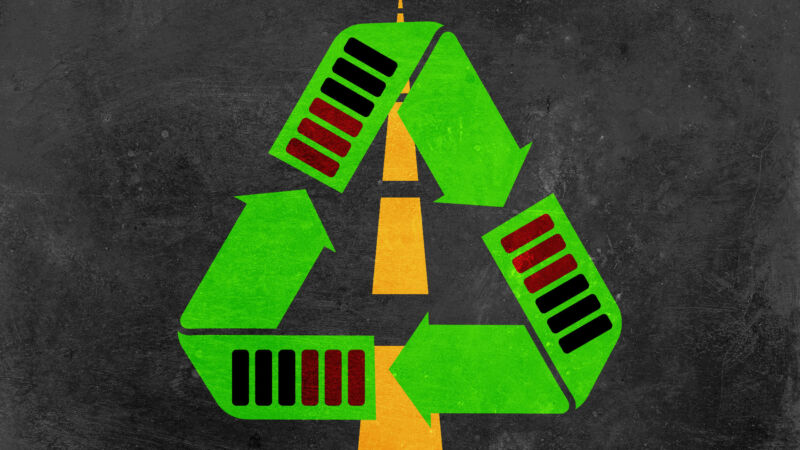
What happens to an electric vehicle’s big slab of batteries once it no longer holds a sufficient charge? On Thursday, Redwood Materials moved that conversation forward with an announcement that it has started its EV battery recycling program, with Ford and Volvo as partners.
US law requires an EV’s traction battery to maintain at least 70 percent of its original state of charge after eight years or 100,000 miles. Even older EVs—ones with proper thermal management for the battery pack—are showing resilience to battery degradation over time.
But eventually, a pack will no longer be suitable for propelling a car, at which point it can be given a second life as static storage. After the battery degrades enough, it’s time for recycling.
We’ve covered a number of different approaches to battery recycling at various stages of commercialization, but few are as far along as Redwood’s. The company was founded in 2017 by former Tesla CTO JB Straubel and has seen investment from Amazon, among others.
Redwood is starting its program in California, where it says it will find end-of-life battery packs by working with dealers and dismantlers. Redwood will then send those packs to its facility in Nevada, where they will be recycled. Some of the materials will find their way into Tesla battery packs later this year.
Redwood, Ford, and Volvo are covering the cost of the program, and Redwood says it will accept any lithium-ion or nickel-metal hydride batteries from EVs or hybrids in the state.
https://arstechnica.com/?p=1835021

